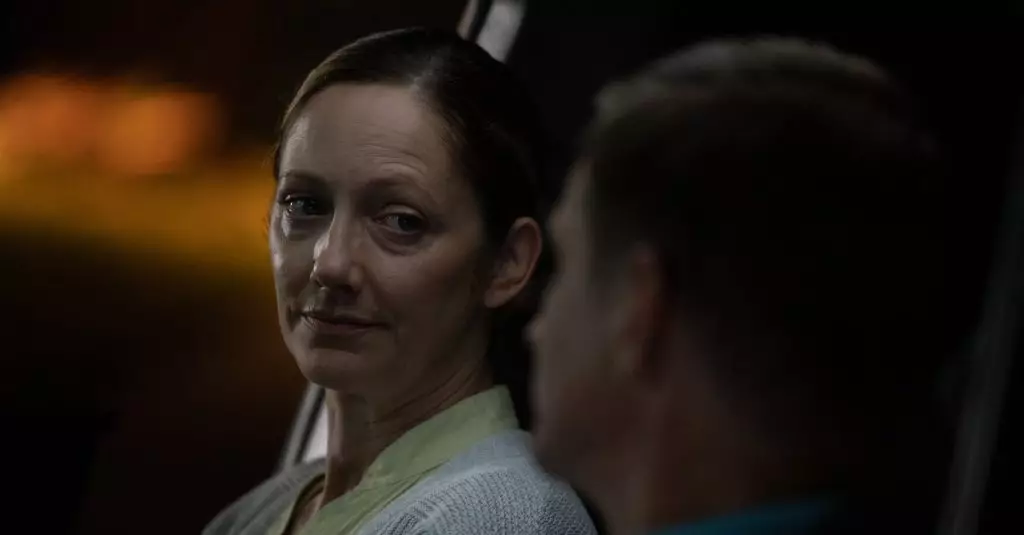In a world increasingly plagued by senseless violence, the powerful narrative of “Eric Larue,” directed by Michael Shannon, seeks to delve into the complex emotional aftermath of a tragic incident. Set to hit theaters on April 4, this feature film reflects the struggle for healing in a society grappling with the consequences of gun violence, particularly within educational environments. Adapted from Brett Neveu’s acclaimed 2002 play, the film marries poignant storytelling with a star-studded cast, including the likes of Judy Greer, Alexander Skarsgård, Alison Pill, Tracy Letts, Paul Sparks, and Annie Parisse.
The central story revolves around the character Janice, portrayed by Greer, a mother left shattered after her son commits an unthinkable act by murdering three of his classmates. This tragedy leaves her in a perpetual state of grief, navigating her reality with a debilitating haze of anger and sorrow. The film intricately explores Janice’s emotional trajectory as she struggles to find solace. Her husband, Skarsgård’s character, seeks refuge in a new religious community, while Janice remains entrenched in her turmoil, rejecting the idea of healing suggested by both her faith and the pastor. This juxtaposition highlights the diverse ways individuals cope with grief and the differing paths one can take in search of solace.
The Director’s Vision and Social Commentary
For Shannon, “Eric Larue” is not merely a project but a deeply personal endeavor. He emphasizes the timeliness of its themes, recognizing the societal anguish surrounding gun violence in schools. As he expressed to Deadline, his aim was to craft a film that could potentially foster healing within a context that continues to confound many. The director’s intent aligns with a broader cultural conversation about accountability and the psychological impact of loss. Shannon hopes to shine a light on the “infinite ripple effects” instigated by such horrifying events, allowing audiences to reflect on the significant societal challenges tied to these issues.
The behind-the-scenes team, marked by significant industry veterans, enhances the film’s artistic credibility. With seasoned producers like Sarah Green and Karl Hartman at the helm, alongside executive producer Jeff Nichols—a frequent collaborator with Shannon—the production benefits from a wealth of experience. This creative combination promises to deliver not just a film, but rather a thoughtful exploration of grief and reconciliation.
A Cultural Reflection Through Art
In an era where cinema often serves as a mirror to societal issues, “Eric Larue” stands out as a narrative-rich project that addresses contemporary dilemmas with sensitivity and depth. By confronting the dark realities of its subject matter, the film seeks to evoke empathy and reflection from its audience. As it prepares for its release, both anticipation and hope surround its potential impact—offering not just a story of personal tragedy but also an opportunity for collective healing in a fractured landscape.
As viewers prepare to witness the poignant story of “Eric Larue,” it promises to be an exploration of grief, faith, and the enduring search for healing in a confusing world. This film aims to resonate with anyone who has experienced loss, challenging the audience to reevaluate their own beliefs and the communal struggles intertwined with individual sorrow.


Leave a Reply